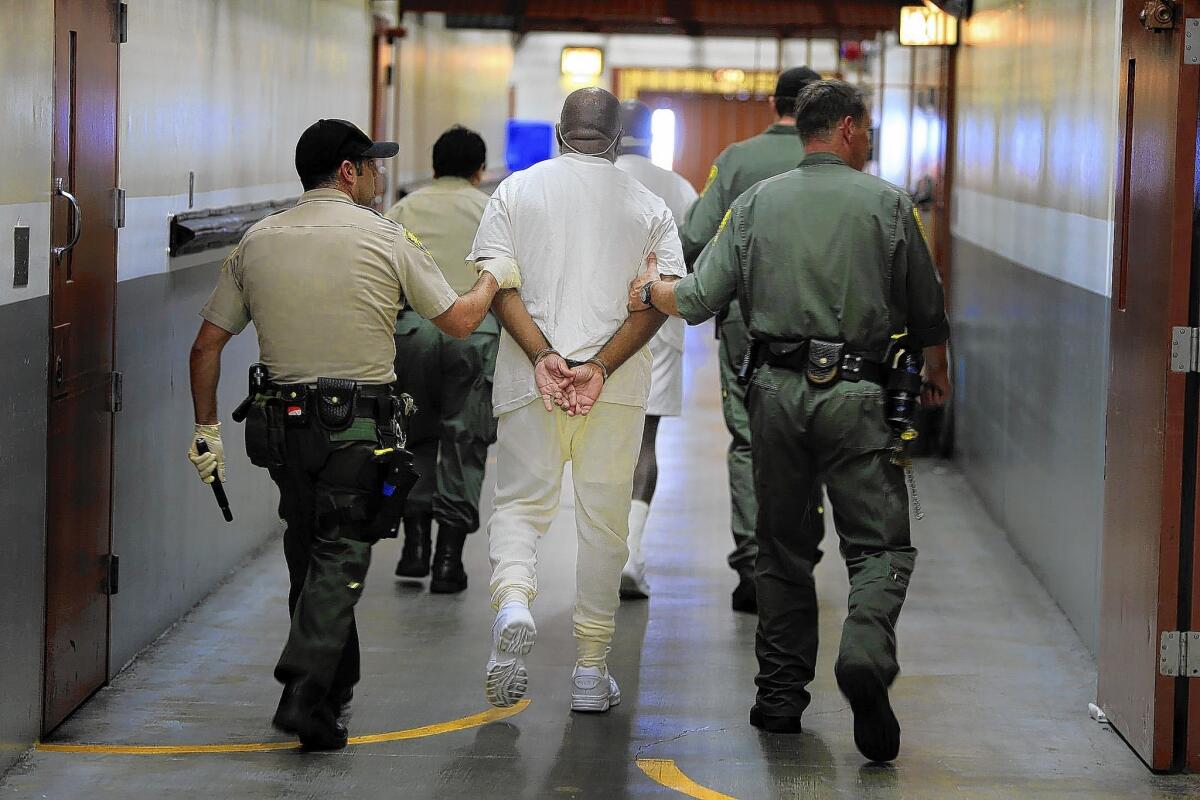California adopts new policies on treatment of mentally ill inmates

- Share via
California prison officials adopted sweeping new policies intended to protect mentally ill prisoners from abusive force and punishment, including use of pepper spray and deep isolation in solitary confinement cells.
The policies, outlined in court documents filed Friday, were developed over the last few months in close negotiation with lawyers and a court-appointed special master assigned to look after the care of tens of thousands of mentally ill inmates within California’s sprawling prison system. An estimated 1 out of 3 inmates requires some level of mental health treatment.
The new use of force policies require corrections officers to address a prisoner’s psychiatric state before deciding to use pepper spray or other force, with an emphasis on steps to avoid what the prison system calls “pain compliance.”
The goal, state lawyers said in court documents, “is to systemically improve [the California prison system’s] practice and culture regarding both when and how force is used.”
U.S. District Judge Lawrence Karlton had ordered changes in April after plaintiffs’ lawyers unearthed videotapes of officers dousing screaming, psychotic inmates with copious amounts of the burning pepper spray in order to move them to a new cell or obey other orders. The tapes became public after The Times fought court orders sealing them.
The department also plans to either limit or eliminate the practice of putting mentally ill inmates into isolation cells alongside those held there for punishment. More than two-thirds of prison suicides occur within those units.
The policy changes were delivered to Karlton on Friday for his decision on whether they go far enough to end practices he called “horrific” in orders issued in April. Acceptance is likely given the approval voiced Friday by lawyers representing inmates in what is the latest chapter of a 24-year class action lawsuit over prison psychiatric services in California.
However, the attorneys cautioned that for the policies to succeed, California will have to change much of the culture within its prisons.
“The devil is in the training,” said Jeffrey Bornstein, who took the lead arguing on behalf of mentally ill prisoners during extended hearings last fall before Karlton.
Bornstein said the policies represent remarkable advancement from a year ago, when Gov. Jerry Brown sought to end oversight of prison mental healthcare, claiming the court sought to “gold plate” already adequate treatment. The progress also comes on the eve of the retirement of Karlton, 79, who has spent more than two-thirds of his federal bench career shepherding the case.
paige.stjohn@latimes.com
Twitter: @paigestjohn
More to Read
Sign up for Essential California
The most important California stories and recommendations in your inbox every morning.
You may occasionally receive promotional content from the Los Angeles Times.














